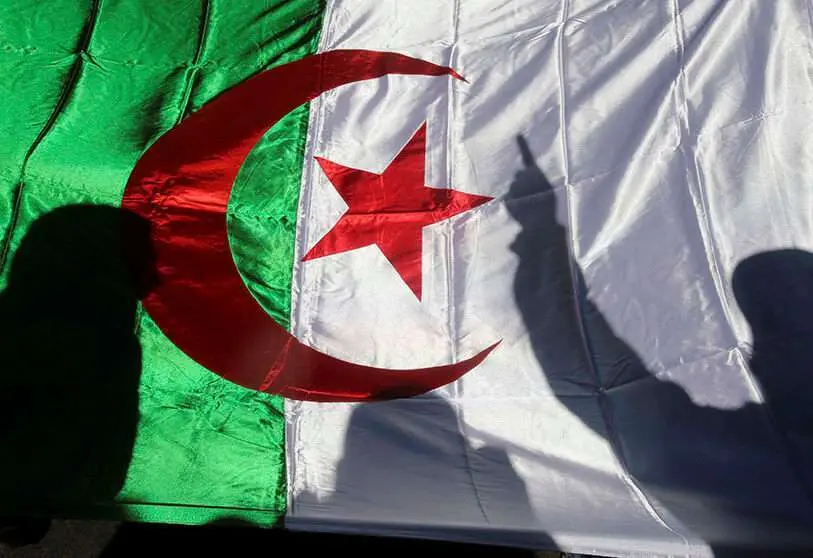A more assertive Algeria

The constitutional referendum held in Algeria in November 2020 could mark the beginning of a more assertive Algerian foreign policy. Apart from reforming the powers of the government, the constitutional amendment authorises the Algerian army to take part in missions abroad. This does not give free rein to intervention as, to become effective, it would need the support of two-thirds of Parliament and should be conducted under the umbrella of the UN, the African Union or the Arab League. In any event, it does represent a break with the traditional policy of non-intervention. This change takes on even greater significance when it is realised that Algeria's defence budget in 2019 was equivalent to 52 percent of the total in North Africa.
Other countries have sought to strengthen their relations with Algeria in recent months, perhaps in the knowledge of the growing regional influence Algeria could have following the referendum.
Algeria's second trading partner after the EU, China recently declared its intention to expand its relations with Algeria in order to align Algeria's development plan with the New Silk Road, with a special focus on trade, technology and anti-terrorist co-operation. This message was conveyed by Yang Jiechi in October 2020 to President Abdemadjid Tebboune shortly before the inauguration of the Great Mosque of Algiers; the third largest mosque in the world, built by the China State Construction Engineering Corporation.
Not only has it supplied 66% of Algerian arms imports in recent years, but Moscow is also a strategic partner of Algiers. The foundations for cooperation were laid in 2001 and this strategic partnership was renewed in 2019 following the visit of minister Sergei Lavrov. Russian-Algerian energy interests have drawn even closer after, in 2017, Transneft signed a memorandum of cooperation with Sonatrach, Algeria's leading hydrocarbon company, following in the footsteps of Gazprom, a Russian company that has been operating in Algeria since 2006.
It has put the pedal to the metal in recent years, becoming Algeria's fourth largest trading partner and surpassing France in terms of foreign direct investment, with over $3.5 billion in investments employing some 30,000 people. This narrowing has also occurred in the political sphere, and was confirmed by the visit of the foreign minister Çavusoglu, followed by President Recep Tayyip Erdogan, in January 2020. During this visit, Erdogan pointed out that Algeria is "one of the strategic partners in North Africa", and "one of the most important doors to the Maghreb and the rest of Africa" for Turkey.
Aware of the courtship coming from other powers, the US decided to send General Stephen Townsned to Algiers in September 2020, who met President Tebboune to discuss regional cooperation and stability. Shortly afterwards, Defence Secretary Mark Esper paid an unexpected visit to Algeria to discuss similar issues with other high-ranking Algerian officials, focusing particularly on antiterrorist cooperation and the holding of joint military exercises in the future.
A constructive and cooperative Algeria in the fight against terrorism and organised crime in the Sahel could greatly benefit the EU, which is currently involved in several operations near the Algerian borders: EUTM-Mali, EUCAP-Sahel-Mali and EUCAP-Sahel-Niger. In addition to acting as a brake on terrorism and illegal immigration, Algeria has a great deal of experience in combating terrorism. Unfortunately, there are several factors that hinder effective cooperation: (1) there is no action plan with concrete measures to combat terrorism as part of the political dialogue between the EU and Algeria; (2) the EU is losing its exceptional commercial influence on Algeria, and despite remaining the leading trading partner, bilateral trade has been declining since 2012; (3) tensions between Algeria-Morocco and Algeria-France have given rise to incompatible plans, such as the Algerian CEMOC initiative that excluded France and Morocco, or the French G5 initiative, which does not take Algeria into account.
Algeria's constitutional amendment raises the possibility of future Algerian interventions in the region. It is therefore necessary for Spain and the EU to propose concrete and inclusive solutions to make Algeria a close partner and prevent it from becoming a country with a divergent agenda.
Albert Vidal /Article30

